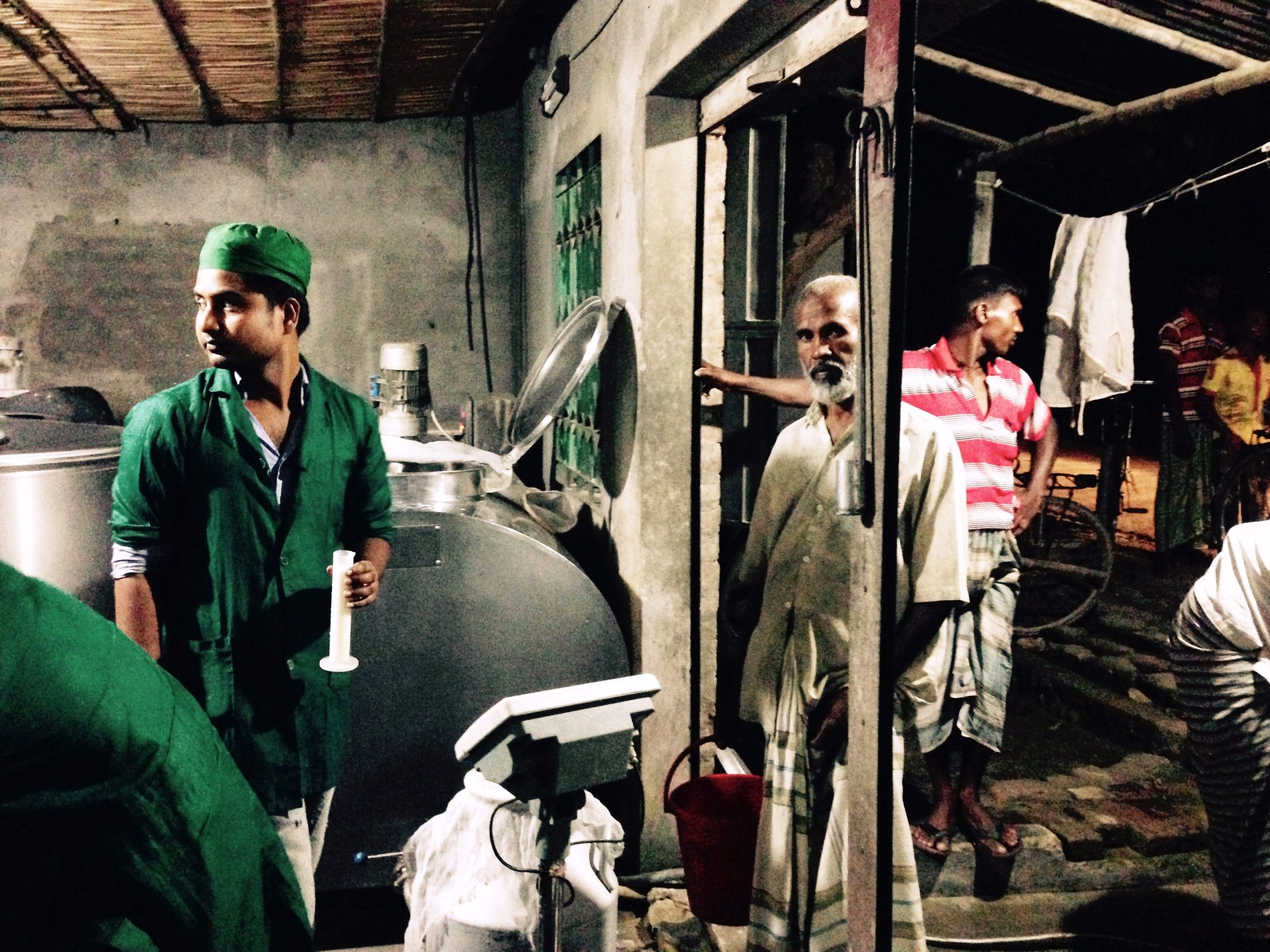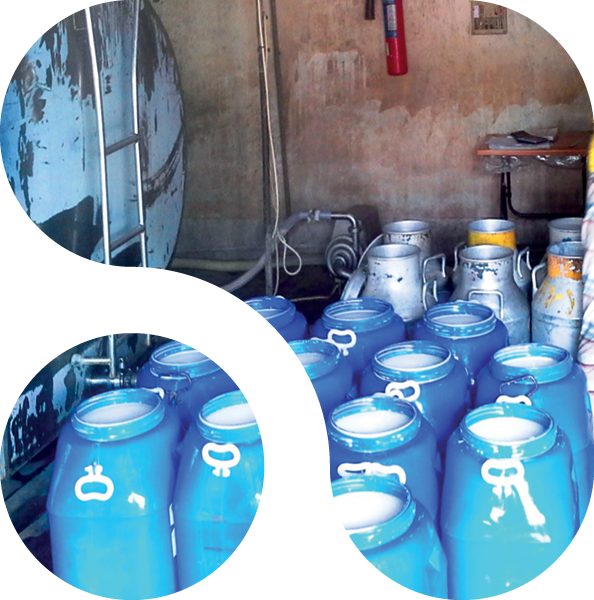- Projects & Programmes
- Solar Powered Dairy Refrigeration in Bangladesh: Enerplus
Our Portfolio
Solar Powered Dairy Refrigeration in Bangladesh: Enerplus

Accounting for 20.1% of GDP in 2010, Bangladesh’s economy is still predominantly agricultural. Bangladeshi citizens also suffer disproportionately from malnutrition and 30% of the population is below the minimum level of dietary energy consumption. Therefore, dairy products are vital to providing caloric and essential vitamin intakes for the people affected.
Offering a reliable and cheaper power supply to dairy processors in combination of enabling them to increase domestic milk collection holds an attractive proposition to the energy needs of a key growing sector in Bangladesh. Enerplus is working with PRAN Dairy, a pioneer of the dairy hub concept, to retrofit existing diesel-powered cooling units with solar PV units and build new collection centers incorporating renewable energy sources in Bangladesh.
Background
Bangladesh’s economy is predominantly agricultural, generating around 63% of total employment, with over 70% of the population living in rural areas. In 2010, the agricultural sector accounted for 20.1% of GDP. According to the FAO, the country’s mixed farming system has led to close interdependencies between crop production and animal husbandry, with livestock having pronounced status as providers of food, nutrition, savings, draught power, manure, transport and other social and cultural functions.
Bangladeshi citizens also suffer disproportionately from malnutrition. Half of Bangladeshi children under five are chronically malnourished, leading to lifelong growth complications, and 30% of the population is below the minimum level of dietary energy consumption. Dairy products are important to providing caloric and essential vitamin intakes for both children and adults, and while bovine livestock is common, inefficiencies and waste lead to significant unmet demand, currently filled with expensive imported dairy in mostly condensed form.
Transitioning Bangladesh’s mostly subsistence-level dairy production to market-oriented units requires improvements in knowledge and technology, and access to energy.

Main Activities
The innovative idea involves the use of RE like solar PV, solar thermal absorption chillers, ice storage, solar water heaters or biomass gasifier or biogas to replace the use of gensets (30-35% of the time) and grid electricity, which would power milk cooling compressors during the receiving process, as well as mini-grids for nearby public facilities such as schools, clinics, and houses and water pumping stations for irrigation combined with energy efficiency improvements like demand management including replacing electric geysers for hot water cleaning. The solution will increase the availability, as well as quality, of fresh domestically produced milk in Bangladesh through increase in number of milk collection centres and increase in production at the existing centres.
Clean Energy in the Agrifood Value Chain

Commercial Process Innovation

Impact
Solar-Powered Dairy Cooling: Potential Market Impact

Enerplus: Direct Impact for dairy processors 15% saving in energy expenses
- Stable power supply
- Stable energy price
- Increased milk collection
- Opportunity to expand milk collection to off-grid regions
- Better milk quality
- Reducing MCCs’ environmental impact on rural communities (reduce noise generated by gensets)
Solar Milk Cooling in Bangladesh

